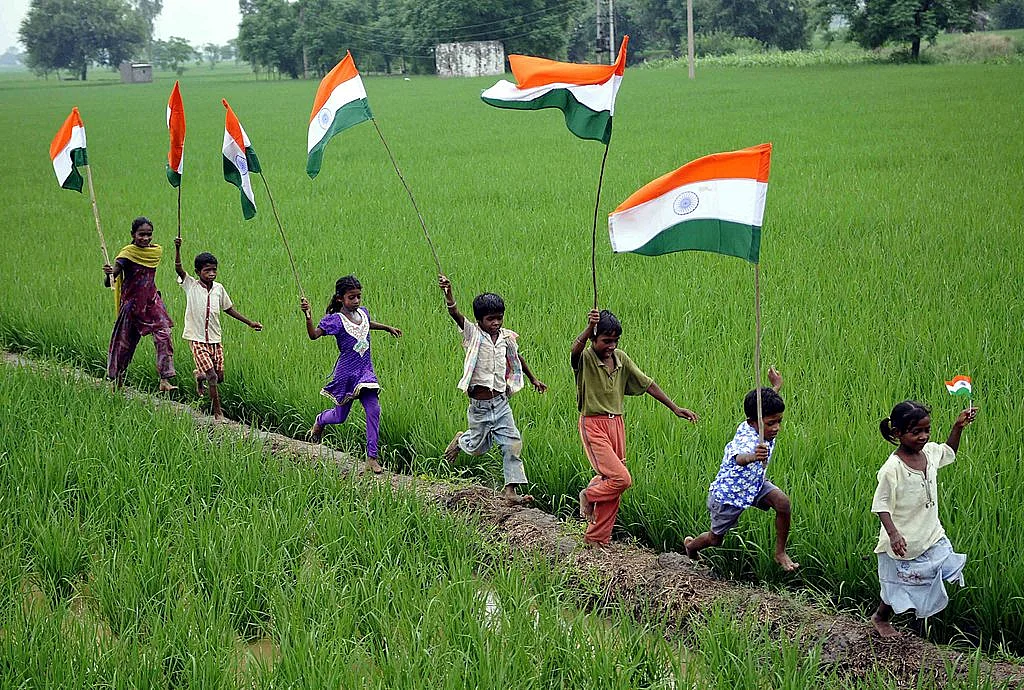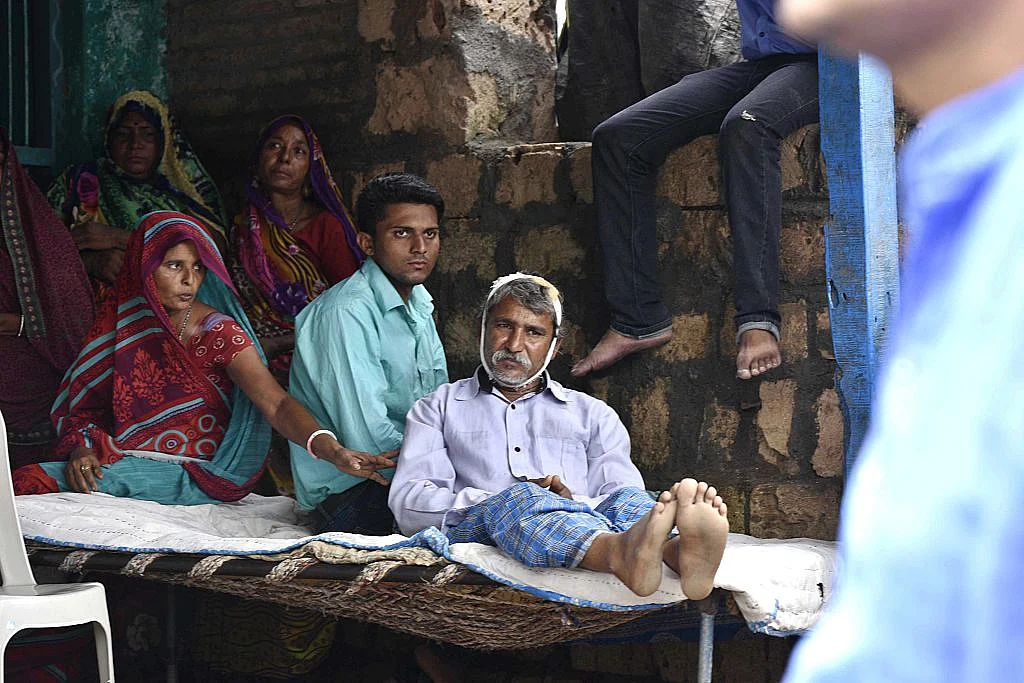Where are the Indians?
<b><i>It’s the ‘Idea of India’ that unites Indians, not race, religion, language, state, or ethnicity</i></b>

India, I have long argued, is more than the sum of its contradictions. It is a country held together, in the words of Jawaharlal Nehru, “by strong but invisible threads ... a myth and an idea, a dream and a vision, and yet very real and present and pervasive”.
This nebulous ‘Idea of India’—though the phrase is Rabindranath Tagore’s—is, in some form or another, arguably as old as antiquity itself. However, the Idea of India as a modern nation based on a certain conception of human rights and citizenship, vigorously backed by due process of law and equality before law, is a relatively recent and strikingly modern idea.
Earlier conceptions of India drew their inspiration from mythology and theology. However, the modern idea of India, despite the mystical influence of Tagore, and the spiritual and moral influences of Mahatma Gandhiji, is a robustly secular and legal construct based upon the vision and intellect of our founding fathers, notably (in alphabetical order) Ambedkar, Nehru and Patel. The Preamble of the Constitution itself is the most eloquent enumeration of this vision. In its description of the defining traits of the Indian republic, in its conception of justice, of liberty, of equality and fraternity, it firmly proclaims that the law will be the bedrock of the Idea of India.
How did India preserve and protect a viable idea of itself in the course of the last 69 years, while it grew from 370 million people to 1.3 billion, re-organised its state structures, and sought to defend itself from internal and external dangers, all the while remaining democratic? I have tried to answer this question at length in my books. Certainly the accomplishment is extraordinary, and worthy of celebration. Amid India’s myriad problems, it is democracy that has given Indians of every imaginable caste, creed, culture, and cause the chance to break free of their age-old subsistence level existence.
When an Italian nation was created in the second half of the 19th century out of a mosaic of principalities and small states, one Italian nationalist wrote: “We have created Italy. Now all we need to do is to create Italians.”
There is social oppression and caste tyranny, particularly in rural India, but Indian democracy offers the victims a means of escape, and often—thanks to the determination with which the poor and oppressed exercise their franchise—of triumph. The various schemes established by successive governments for the betterment of the rural poor are a result of this connect between our citizens and the State.

And yet, in the nearly seven decades since Independence, democracy has failed to create a single political community. Instead, we have become more conscious than ever of what divides us: religion, region, caste, language, ethnicity. The political system has become looser and more fragmented. Politicians mobilise support along ever-narrower lines of political identity. It has become more important to be a "backward caste", a "tribal", or a religious sectarian than to be an Indian; and of course, to some it is more important to be a "proud" Hindu than to be an Indian. This is particularly ironic because one of the early strengths of Nehruvian India—the survival of the nationalist movement as a political party, the Congress Party serving as an all-embracing, all-inclusive agglomeration of the major political tendencies in the country—stifled the normal process of contention over political principle. With the emergence and growth of other political forces, politicians have been tempted to organise themselves around identities other than party (or to create parties to reflect a specific identity).
Caste, which Nehru and his ilk abhorred and believed would disappear from the social matrix of modern India, has not merely survived and thrived, but has become an instrument for highly effective political mobilisation. Candidates are picked by their parties with an eye toward the caste loyalties they can call upon; often their appeal is overtly to voters of their own caste or sub-caste, urging them to elect one of their own. The result has been the growth of caste-consciousness and casteism throughout society. In many States, caste determines educational opportunities, job prospects, and governmental promotions; all too often, people say you cannot go forward unless you're a "backward".
Ironically, a distinctive feature of the Nehruvian legacy was its visionary rejection of India's assorted bigotries and particularisms. All four generations of Nehrus in public life remained secular in outlook and conduct. Their appeal transcended caste, region, language, and religion, something virtually impossible to say of most other leading Indian politicians.
Whether through elections or quotas, political mobilisation in contemporary India has asserted the power of old identities, habits, faiths, and prejudices. Transcending them will be a major challenge for the Indian polity in the 21st Century.
One does question: What makes India a nation? In a country notorious for identity politics, especially at election time, we may well ask: What is an Indian's identity?
When an Italian nation was created in the second half of the 19th century out of a mosaic of principalities and small states, one Italian nationalist wrote: “We have created Italy. Now all we need to do is to create Italians.”
It is striking that, half a century later, no Indian nationalist succumbed to the temptation to express a similar thought. The prime exponent of modern Indian nationalism, Nehru, would never have spoken of “creating Indians,” because he believed that India and Indians had existed for millennia before he articulated their political aspirations in the 20th century.
What makes India a nation? In a country notorious for identity politics, especially at election time, we may well ask: What is an Indian’s identity?
Nonetheless, the India that was born in 1947 was in a very real sense a new creation: a state that made fellow citizens of the Ladakhi and the Laccadivian, divided Punjabi from Punjabi and asked a Keralite peasant to feel allegiance to a Kashmiri Pandit ruling in Delhi, all for the first time.
So Indian nationalism was not based on any of the conventional indices of national identity. Not language, since our constitution now recognises 23 official languages, and as many as 35 languages spoken by more than a million people each.
Not ethnicity, since the “Indian” accommodates a diversity of racial types in which. many Indians (Punjabis and Bengalis, in particular) have more ethnically in common with foreigners than with their other compatriots.
Not religion, since India is a secular pluralist state that is home to every religion known to mankind, with the possible exception of Shintoism.
Not geography, since the natural geography of the subcontinent—framed by the mountains and the sea—was hacked by the partition of 1947.
And not even territory, since, by law, anyone with one grandparent born in pre-partition India—outside the territorial boundaries of today’s state—is eligible for citizenship. Indian nationalism has therefore always been the nationalism of an idea.
It is the idea of an ever-ever land—emerging from an ancient civilisation, united by a shared history, sustained by pluralist democracy. India’s democracy imposes no narrow conformities on its citizens.
The whole point of Indian pluralism is you can be many things and one thing: you can be a good Muslim, a good Keralite and a good Indian all at once. The Indian idea is the opposite of what Freudians call “the narcissism of minor differences”; in India, we celebrate the commonality of major differences.
So the Idea of India is of one land embracing many. Geography helps, because it accustoms Indians to the idea of difference.
If America is a melting-pot, as I have long argued, then to me India is a thali, a selection of sumptuous dishes in different bowls.
The Indian idea is that a nation may endure differences of caste, creed, colour, conviction, culture, cuisine, costume and custom, and still rally around a consensus. And that consensus is around the simple idea that in a democracy you don’t really need to agree—except on the ground rules of how you will disagree.
My idea of India celebrates diversity: if America is a melting-pot, as I have long argued, then to me India is a thali, a selection of sumptuous dishes in different bowls. Each tastes different, and does not necessarily mix with the next, but they belong together on the same plate, and they complement each other in making the meal a satisfying repast.
This is the Idea of India that we must defend at all costs. India's founding fathers wrote a constitution for their dreams; we have given passports to their ideals. Today these ideals are contested not only by stone-throwing young men in the streets of Srinagar and rifle-wielding Maoists in the forests of Chhattisgarh, but also by self-righteous triumphalists in the ruling party who proclaim that all Indians must subscribe to their narrow vision of Hindutva as an alternative to a more capacious Indianness.
They advocate a nationalism that is divisive rather than inclusive, embodied in a chauvinism intolerant of diversity and difference.
This is a battle for India's soul. All of us who believe in the liberal values embodied in our Constitution must strive to ensure that the ultimate winner must be the Idea of India. Indians must remain faithful to our founding values of the 20th century if we are to conquer the 21st.
Shashi Tharoor is a Congress Member of the Lok Sabha and a former Union Minister. Views expressed are personal. He tweets at @ShashiTharoor
Follow us on: Facebook, Twitter, Google News, Instagram
Join our official telegram channel (@nationalherald) and stay updated with the latest headlines
Published: 10 Nov 2016, 3:10 PM
